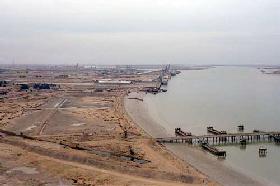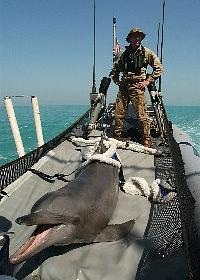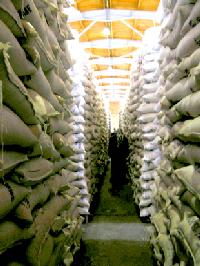|
The United Nations World Food Programme (WFP), the world's largest food aid agency, has been stockpiling food near Amman, Jordan. The United States has asked WFP to run Iraq's food distribution system, now that the UN Oil for Food Programme, on which nearly 60 percent of Iraqi people relied for food, has been suspended.
With some 2.1 million people expected to require emergency assistance in the next four weeks, WFP has already built up sufficient supplies in the region to feed two million people for one month.
Australia has announced that it will make 100,000 tons of wheat available to feed the Iraqi people.
The European Commission plans to direct at least €100 million in humanitarian relief, through the Humanitarian Aid Office (ECHO), to help ease the plight of victims of the Iraq war. At a meeting in Brussels on Friday, the Commission decided to make an immediate request for the release of €79 million from the emergency budget reserve.
The U.S. Agency for International Development (USAID) Monday announced a $4.8 million award to Stevedoring Services of America (SSA) for assessment and management activities at the Umm Qasr port. SSA will be responsible for the effective operation of the port, allowing food and other humanitarian and reconstruction materials and supplies to be delivered.
The company, based in Seattle, Washington, will provide an initial port assessment, develop improvement plans, and supply technical expertise to ensure shipping is operational. The company will be responsible for the port pilots who will guide ships up the channel, and will manage the access of trucking companies to the port and establish a system of controls to avoid theft and corruption, said USAID.
USAID has received 20 to 30 nongovernmental agency grants for Iraq humanitarian relief, said agency Administrator Andrew Natsios who said that $30 million in grant proposals will be awarded next week.
Natsios said at a briefing Tuesday that the United States is the largest donor of assistance to Iraq, and the U.S. has made a commitment of 610,000 tons of food, plus other supplies and equipment for Iraqi relief.
Top
|


